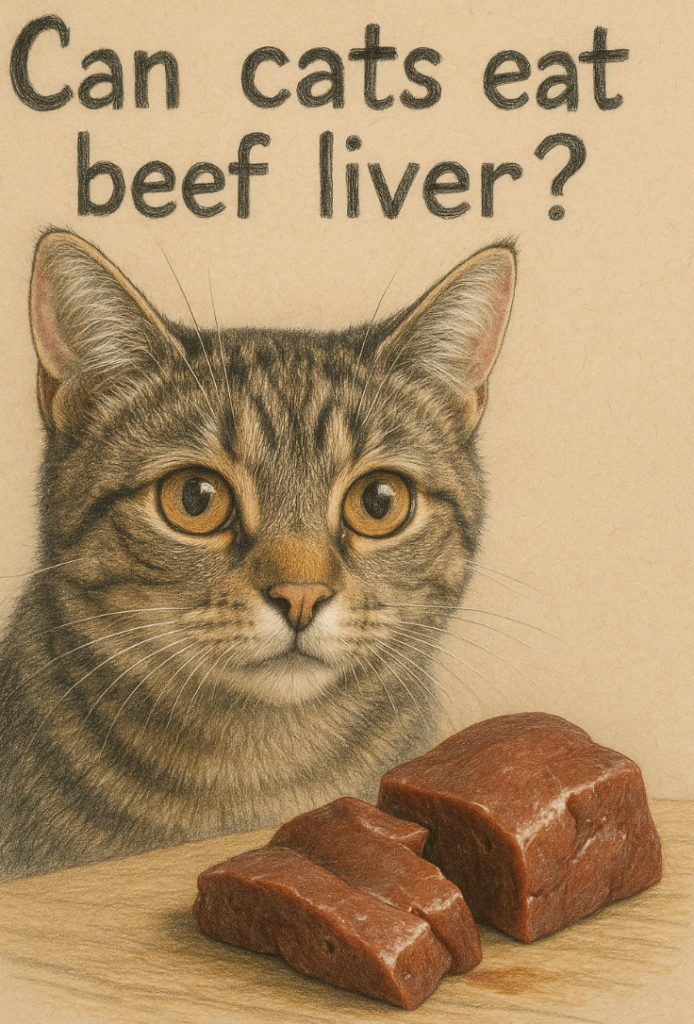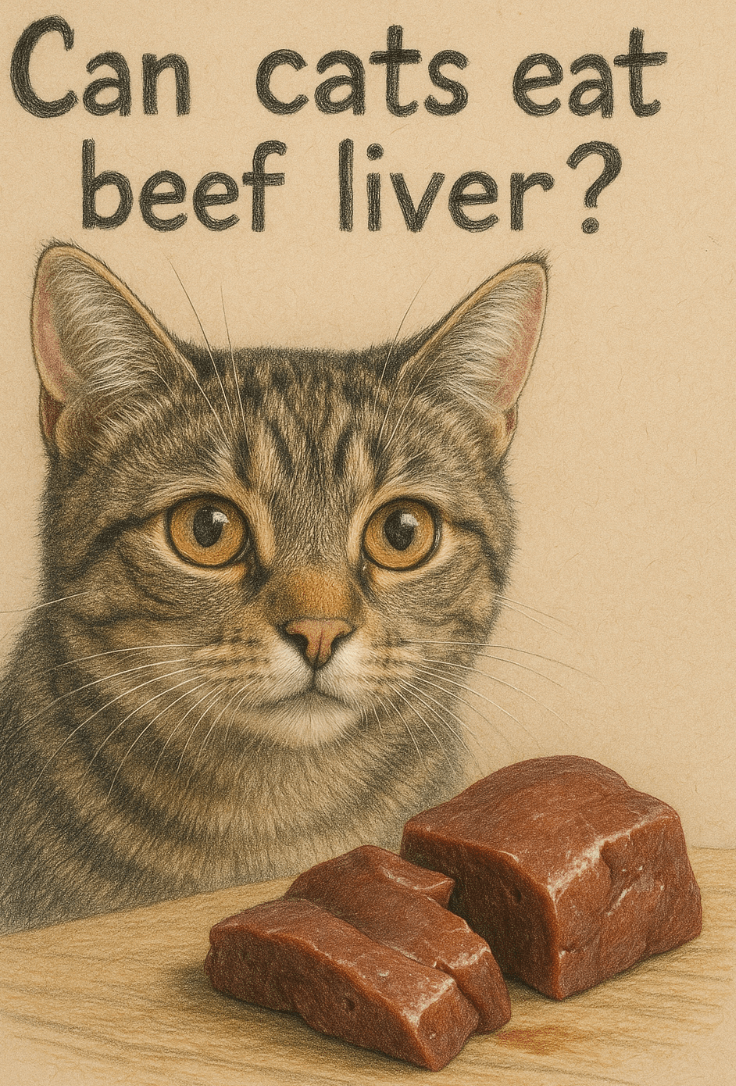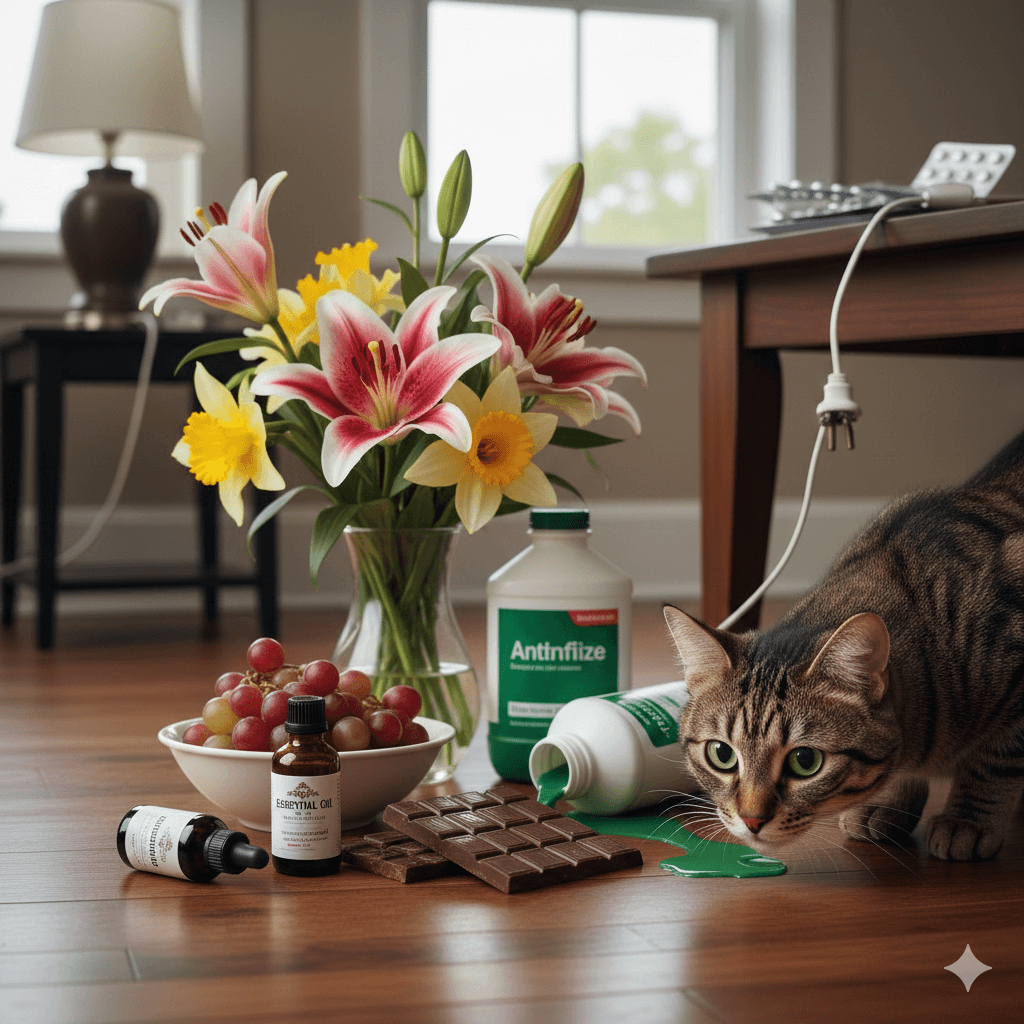Can Cats Eat Beef Liver?
As a responsible cat owner, you may wonder whether beef liver is a safe and nutritious treat for your feline friend. After all, cats are obligate carnivores, meaning their diet should primarily consist of animal-based proteins. Beef liver, rich in essential vitamins and minerals, might seem like an excellent addition to their meals. However, it’s important to understand both the benefits and potential risks of feeding beef liver to your cat. In this blog post, we’ll explore everything you need to know about incorporating beef liver into your cat’s diet, from its nutritional value to safe feeding practices. By the end, you’ll be equipped with the knowledge to make informed decisions about your cat’s health and happiness.
Nutritional Benefits of Beef Liver for Cats
Beef liver is packed with nutrients that can support your cat’s overall health when fed in moderation. Here are some of the key benefits this organ meat offers to felines.
Rich in Protein:
Beef liver is an excellent source of high-quality protein, which is essential for muscle development and energy production.High in Vitamin A:
This vitamin supports healthy vision, skin, and immune function, making it vital for your cat’s well-being.Packed with B Vitamins:
B vitamins, such as B12 and riboflavin, contribute to metabolic health and red blood cell production.Iron Content for Energy:
The iron in beef liver helps prevent anemia and ensures oxygen is efficiently transported throughout the body.Omega-3 Fatty Acids:
These healthy fats promote a shiny coat, reduce inflammation, and support brain health.
While beef liver offers numerous nutritional advantages, it’s crucial to feed it in moderation to avoid potential health issues.
Potential Risks of Feeding Beef Liver to Cats
While beef liver has many benefits, overfeeding or improper preparation can lead to health problems for your cat. Understanding these risks will help you feed it safely.
Vitamin A Toxicity:
Excessive consumption of beef liver can lead to hypervitaminosis A, causing symptoms like bone pain and joint stiffness.High Fat Content:
Beef liver contains fat, which can upset your cat’s stomach or contribute to obesity if fed in large amounts.Risk of Parasites or Bacteria:
Raw beef liver may harbor harmful pathogens like Salmonella or E. coli, posing a risk to both cats and humans.Imbalanced Diet Risk:
Relying too heavily on beef liver can disrupt the balance of nutrients in your cat’s diet, leading to deficiencies or excesses.Digestive Upset:
Sudden introduction of beef liver or feeding too much at once can cause vomiting or diarrhea in sensitive cats.
By being aware of these risks, you can take steps to ensure beef liver remains a safe and occasional treat for your cat.
Check this guide 👉Can Cats Eat Caviar? Best 7 Expert Tips!
Check this guide 👉Can Cats Eat Sunflowers? Best 7 Expert Tips!
Check this guide 👉Can Cats Eat Clams? Best 7 Expert Tips!

Benefits of Beef Liver for Cats | Risks of Overfeeding Beef Liver |
|---|---|
High-quality protein for energy | Risk of Vitamin A toxicity |
Supports vision and immune health | Potential for digestive upset |
Rich in essential B vitamins | Imbalance in overall nutrient intake |
Promotes healthy skin and coat | Risk of parasites or bacteria in raw liver |
Contains iron to prevent anemia | High fat content may lead to obesity |
How to Safely Feed Beef Liver to Your Cat
Feeding beef liver to your cat requires careful preparation and portion control to maximize benefits while minimizing risks. Follow these guidelines for a safe experience.
Choose High-Quality Liver:
Opt for fresh, organic beef liver from reputable sources to ensure it’s free from harmful additives or contaminants.Cook Thoroughly:
Cooking eliminates the risk of bacteria and parasites, making beef liver safer for your cat to consume.Limit Portion Sizes:
Serve small amounts—about 1 teaspoon per 10 pounds of body weight—once or twice a week as a treat.Introduce Gradually:
Start with tiny portions to monitor your cat’s reaction and avoid sudden digestive upset.Balance with Other Foods:
Ensure beef liver complements a nutritionally complete diet rather than replacing regular meals.
By following these tips, you can safely incorporate beef liver into your cat’s diet without compromising their health.
Signs Your Cat May Not Tolerate Beef Liver
Even with careful preparation, some cats may not tolerate beef liver well. Watch for these signs to determine if it’s suitable for your pet.
Vomiting or Diarrhea:
These symptoms indicate digestive distress, often caused by introducing new foods too quickly or feeding excessive amounts.Lethargy or Weakness:
Unusual tiredness could signal an adverse reaction to the nutrients in beef liver.Loss of Appetite:
If your cat refuses food after eating beef liver, it may indicate nausea or discomfort.Joint Stiffness or Pain:
Signs of hypervitaminosis A include difficulty moving or limping due to bone changes.Excessive Drooling:
Drooling can suggest nausea or irritation caused by consuming beef liver.
If you notice any of these signs, discontinue feeding beef liver and consult your veterinarian immediately.
Common Mistakes to Avoid When Feeding Beef Liver
Feeding beef liver to your cat requires caution to prevent mistakes that could harm their health. Here are some pitfalls to watch out for.
Overfeeding:
Too much beef liver can overwhelm your cat’s system, leading to nutrient imbalances or toxicity.Feeding Raw Without Precautions:
Skipping the cooking step increases the risk of bacterial infections like Salmonella or E. coli.Using Processed or Seasoned Liver:
Avoid liver products with added salt, spices, or preservatives, as these can be harmful to cats.Neglecting Portion Control:
Even small amounts fed too frequently can cause long-term health issues. Stick to recommended serving sizes.Ignoring Allergies or Sensitivities:
Some cats may have adverse reactions to beef liver; observe closely during initial feedings.
Avoiding these mistakes ensures a safer and healthier experience for your cat.
Alternatives to Beef Liver for Nutritional Variety
If beef liver isn’t suitable for your cat, there are other nutrient-rich options to consider. These alternatives provide similar benefits without the associated risks.
Chicken Liver:
Lower in fat and milder in flavor, chicken liver is a popular alternative that’s easier to digest.Turkey Liver:
Another lean option, turkey liver offers a rich source of vitamins and minerals.Commercial Cat Food Supplements:
High-quality wet or dry cat foods often contain organ meats as part of a balanced formula.Bone Broth (Unsalted):
Strained, unsalted bone broth provides nutrients found in organ meats without the texture.Freeze-Dried Organ Meat Treats:
Specially formulated treats mimic the nutritional profile of liver in a convenient form.
These alternatives allow you to diversify your cat’s diet while ensuring they receive essential nutrients.
Understanding Your Cat’s Dietary Needs and Preferences
Every cat is unique, and their dietary preferences and needs vary based on age, activity level, and health status. Understanding these factors helps tailor their diet effectively.
Age Considerations:
Kittens require more calories and nutrients for growth, while senior cats benefit from lower-fat diets.Activity Level:
Highly active cats may need more protein and calories, whereas sedentary cats require controlled portions.Health Conditions:
Cats with conditions like kidney disease or obesity may need specialized diets approved by a vet.Food Preferences:
Some cats enjoy variety, while others prefer consistency; observe what works best for your pet.Hydration Needs:
Wet foods or water-rich treats help keep cats hydrated, especially those prone to urinary issues.
By considering these aspects, you can create a personalized feeding plan that keeps your cat happy and healthy.
Frequently Asked Questions About Feeding Beef Liver to Cats
How often can I feed my cat beef liver?
Limit beef liver to once or twice a week in small portions to avoid nutrient imbalances or toxicity.
Is raw beef liver safe for cats?
No, raw beef liver carries the risk of bacterial contamination; always cook it thoroughly before serving.
Can kittens eat beef liver?
Kittens have sensitive digestive systems; consult your vet before introducing beef liver to their diet.
What should I do if my cat eats too much beef liver?
Monitor for symptoms of Vitamin A toxicity and contact your vet if you notice any concerning signs.
Are there alternatives to beef liver for cats?
Chicken liver, turkey liver, or commercially prepared cat foods fortified with essential nutrients are great alternatives.
Balancing Nutrition and Safety When Feeding Beef Liver
Beef liver can be a nutritious and tasty addition to your cat’s diet when fed responsibly. Its abundance of essential vitamins and minerals makes it a valuable treat, but overfeeding or improper preparation can lead to health complications. By understanding the benefits, risks, and proper feeding practices, you can provide your cat with a balanced diet that supports their overall well-being. Always prioritize moderation and consult your veterinarian if you’re unsure about introducing new foods. With care and attention, beef liver can become a safe and enjoyable part of your cat’s culinary repertoire.
What Is Toxic to Cats: Best 7 Expert Tips! – Discover common toxins, recognize symptoms, and learn how to keep your cat safe from harmful substances.
Portuguese Podengo: Best 7 Expert Tips! – Learn about the lively, loyal Portuguese Podengo breed, its care needs, and why it’s perfect for active families. Discover expert advice now!
What is Toxic to Dogs: Best 7 Expert Tips! – Discover common toxins, symptoms of poisoning, and how to keep your dog safe from harmful substances.
Maltese Dog Life Span: Best 7 Expert Tips! – Discover how to maximize your Maltese’s lifespan with expert advice on health, diet, and care.





